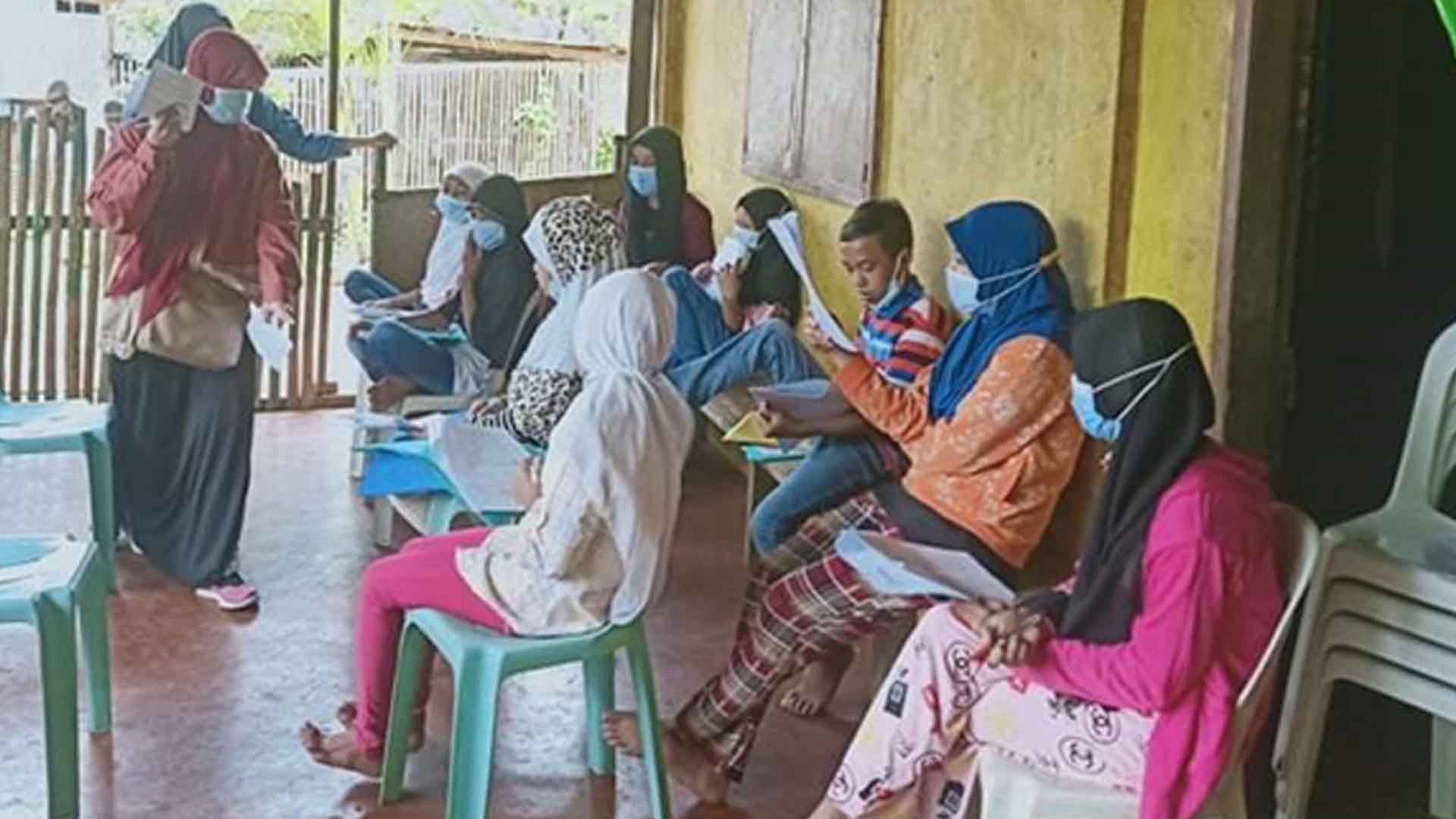The Senate has recommended the resumption of face-to-face classes in the Philippines through the immediate launch of a trial run in low risk areas, nearly a year since the coronavirus pandemic shuttered schools across the country and forced students to learn remotely.
In a resolution adopted on Tuesday, the Senate proposed the “immediate launch of the pilot testing of localized limited face-to-face classes in low risk areas as identified by the Department of Education” with strict compliance to health protocols.
The pilot test will allow the DepEd, Department of Health and the Inter-Agency Task Force on the Management of Emerging and Infectious Diseases “to gather evidence on the ground to guide the framework for the safe reopening of schools,” the resolution said.
The participation of learners in the pilot run will be voluntary and they will need permission of their parents or guardians, it added.
Since the global health crisis led to school closures around the world in early 2020, many have reopened, fully or partially. The Philippines is among four countries in Asia where schools have remained shut, according to Zurich-based independent educational foundation Insights for Education.
President Rodrigo Duterte earlier scrapped a plan by the DepEd to hold a limited trial run of in-person classes for two weeks in January, citing concern over the new COVID-19 variant.
“During pre-COVID, our learners did not do well in international large-scale assessments and our national achievement scores were not doing great. And now, because of the lack of access to face-to-face education, Internet, and gadgets, the learners are left on their own,” said Senator Sherwin Gatchalian, chairman of the Senate committee on basic education.
Filipino Grade 5 students lagged some of their regional counterparts in reading, writing and mathematics proficiency, based on the 2019 Southeast Asia Primary Learning Metrics done by the United Nations Children’s Fund and Southeast Asian Ministers of Education Organization.
The year before, 15-year old students from the Philippines ranked lowest among 79 countries in reading proficiency and second lowest in mathematics and science in the Programme for International Student Assessment.
Gatchalian is part of the Board of Trustees of Synergeia Foundation which works with more than 400 local governments in the country to boost the quality of basic education.
He will be among the main speakers at the 14th Washington SyCip National Education Summit on March 25-26 to be held virtually. He will discuss how the central government can spearhead the ascent towards increased proficiency.
In partnership with the U.S. Agency for International Development and United Nations Children’s Fund, Synergeia has encouraged its local government partners to conduct in-person tutorials in areas where there are zero COVID-19 cases or low risk places to help students cope with remote learning.
Limited face-to-face learning sessions are being implemented by local governments and barangays in parts of La Union, Iloilo, Lanao del Sur and Maguindanao provinces with strict compliance to safety standards.
During the arrival of COVID-19 vaccines from Sinovac on Sunday, Duterte still opposed the resumption of face-to-face classes, saying it will put “the children in jeopardy”.
“While various factors, including infection levels, population density, health system capacity, and school system readiness, are important considerations…global experiences demonstrate that even under very challenging circumstances schools can be safely opened and, most often, remain open,” Insights for Education said.








